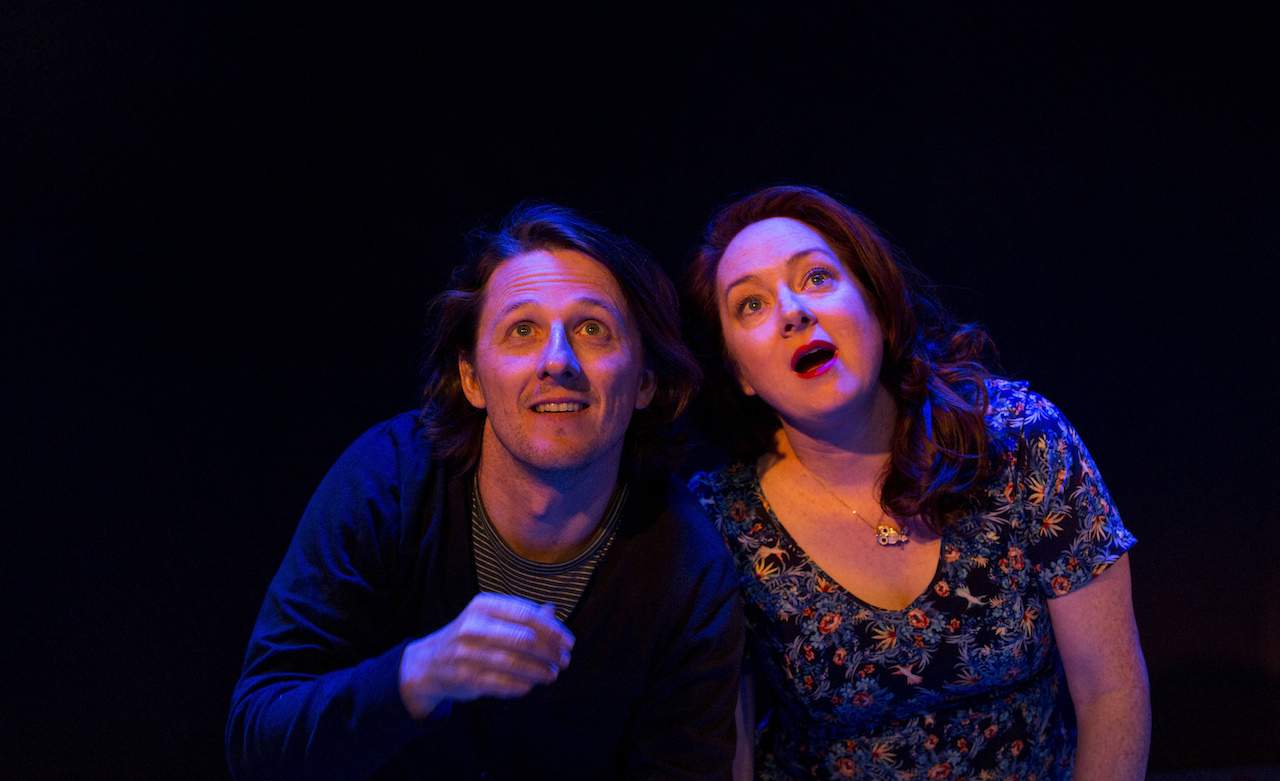Cinderella - Belvoir
A refreshing Cinderella story that exposes the unsexy nature of real-life first dates.
Overview
Seeing Cinderella downstairs at Belvoir is like going on a first date, but in the real world. Directed by Anthea Williams and written by Matthew Whittet, Cinderella undermines the Hollywood rom-com to hilarious effect. It first utilises the universal and pervasive fairytale, and our knowledge that it will all end at midnight. Then it usurps it, with depictions of crippling loneliness, and a stubborn heroine in her early 40s who refuses to compromise for the sake of our happy ending.
Spending the evening with the contemporary Cindy/'Ashley' (Mandy McElhinney), alerts us to pop culture's continued brainwashing about 'romance'. A female in 2014 is still told to expect chocolates, flowers and rides in horse-led carriages. But sometimes the best it's going to get is a cheap Chinese meal and a personalised ringtone. Williams' direction validates the real-life version of romance as beautiful, and actually preferable... even if incredibly daggy.
Cinderella is a success due to the generosity of its two actors, Mandy McElhinney and writer/actor Matthew Whittet. Both give mesmerising performances because they allow themselves to be completely present, as we watch on. They sit quietly in their human failure and sadness, and reach out to each other (and us), searching for something to puncture the loneliness. This depth alternates with unbelievably funny moments: Whittet’s interpretive dance to disrobe himself is one of the most joyous things I've ever seen. The dialogue is also extremely witty, pacey, and gets to the heart of each character.
The play closes with elements of surrealism and impossibility that fend off the fairy tale formula. It's satisfying to file out over the shaggy carpet at the end and hear everyone's murmured hypotheses of what just happened. Cinderella surprises you if you've underestimated it, and has you wondering how far a mother's matchmaking influence can reach. A small, digital clock remains constant in the midst of Elizabeth Gadsby's minimal, versatile set. It's a lovely, unobtrusive way to mark the passing of real time, as we sit with McElhinney and Whittet, as they perch on the gutter outside a nightclub, or hang out in an autumnal park. It also helpfully fast-forwards through the hours to ensure we see the best bits of the night.
This is a play for realistic romantics and self-determining dreamers. It reveals there is no formula to love, and falsifies Hollywood-built expectations. The loveliest image in Cinderella for me became a metaphor for the whole play: thousands of moths tickling my whole body. Society sees moths as ugly or negative, when compared to butterflies, but the less superficially attractive sensations often teach us the most.
Image by Brett Boardman.





